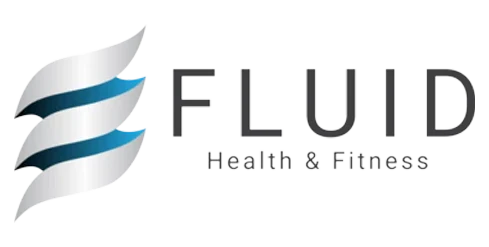Physical Contributors to Stress: Medications/Drugs
Advancements in medications and treatments in healthcare have made a significant difference in the last couple of decades; however, many of these medications come with their own set of side effects that cannot be ignored.
Pharmacology and Stress:
It is important to remember that although modern medicine has given us a variety of medications to treat all manner of ailments, they bring with them a large variety of side effects. These side effects, can often cause other issues and damage to the body. Many of the medications today are used to treat the symptoms of an underlying illness, but not the illness itself. This means that although some of the symptoms may be managed, other damage and stress that an illness can have on the body is still going on. Some medications can inhibit the body’s natural inflammatory response, others can cause more inflammation, weight gain, high blood pressure, sleeplessness, headaches. These side effects place added physical stress on the body. There are also many recreational drugs that can cause stress and damage to the body, including methamphetamines, cocaine, opioids, hookah, etc.
Common Medications to Pay Attention to:
There is a seemingly endless list of different medications that are prescribed on a daily basis in the united states. Some of the most common medications include depression/mood stabilizing, blood pressure/hypertension, contraceptives, diabetes and antibiotics. Below are these medications and the most common side effects that are associated with them:
- Depression/Mood Stabilizing
- For these medications to work properly, they need a constant supply of B vitamins. This creates an increased risk for a deficiency in all the B vitamins.
- Other common side effects that can cause stress include:
- Nausea, vomiting, diarrhea, weight gain, increased thirst and urination, thyroid problems, sodium deficiency, diabetes, pancreatitis, birth defects, dizziness/drowsiness, etc.
- Blood Pressure/Hypertension
- Depending on what type of hypertensive medication a person is taking there can be an increased risk of potassium, magnesium, sodium, calcium, zinc, melatonin, B1 and B6 deficiencies.
- Other common side effects that can cause stress include:
- Diarrhea or constipation, tiredness/weakness/drowsiness, nausea, vomiting, headaches, insomnia/sleep issues, increased urination, muscle cramping, loss of taste, depression, etc.
- Contraceptives
- The hormone imbalance caused by taking contraceptives can have other effects as well, including an increased risk of deficiencies in zinc, magnesium, selenium, vitamin E, vitamin C and the B vitamins.
- Other common side effects that can cause stress include:
- Nausea, weight gain, mood changes, headaches, blood spotting, thyroid problems, blood clotting, etc.
- Diabetes
- Artificially regulating blood sugar and the use of these medications can take their toll on the body, including increasing the risk of deficiencies in B12, Vitamin D, Vitamin E, magnesium and calcium.
- Other common side effects that can cause stress include:
- Hypoglycemia, upset stomach, weight gain, skin rash/itching, kidney complications, decreased appetite, gas, bloating, diarrhea, liver disease, fluid retention, increased risk of fractures, increased cholesterol, hypotension, etc.
- Antibiotics
- The overuse of antibiotics in food and in health care has caused some real concern for the stress that it is causing on the human body. This includes an increased risk of nutritional deficiencies in biotin, B vitamins, vitamin K, calcium, iron, magnesium and potassium.
- Other common side effects that can cause stress include:
- Vomiting, diarrhea, nausea, allergic reactions, yeast infection, mouth sores, bacteria/antibiotic resistance.
What this Means at Large:
Nearly 70% of the population in the United States are taking prescription medications on a regular basis. And although side effects may be listed in the drug information, many people are unaware of just how much stress many of these medications can place on the body. Also, unfortunately the focus of medications and healthcare now is on treating symptoms instead of preventing a disease state, especially with chronic diseases. It is important to listen to doctor recommendations in regards to medications and treatment of diseases/illnesses, however, it is important to also focus on knowing and making healthy lifestyle choices that can and have shown to help reverse certain disease states. It is always better to find ways to treat a disease or illness to reduce the amount of physical stress caused by the overuse of medications. Also, knowing how the medications being used effect the body can help someone feed their body to best counteract these stressful side effects.
Goals
- Awareness:
- Being aware of what physical stressors you are placing on your body is always the first step.
- Make a list of medications that you are taking on a regular basis (everything from birth control to blood pressure medications),
- Then make a note of any side effects that you are experiencing and list the nutrients that you are at risk of being deficient in.
- Tracking:
- .Tracking your intake and comparing that to your list of medications and nutrition risks, will show you where there may be gaps to be filled in.
- Use a program, such as Chronotracker to track your food and beverage intake for at least 3-4 days.
- Then look at the breakdown of your macro and especially micronutrient intake.
- Note any lows in nutrient intakes.
- Action:
- .Take action!
- Use the tracking and notes that you have taken and make changes to your diet to better compensate for any gaps.
- Include food sources of specific nutrients that you may be at greater risk of being deficient in or have had lower intake of.
- For greater concerns, consult a physician, dietitian or lab to see what your options are for testing more specifically for deficiencies.



